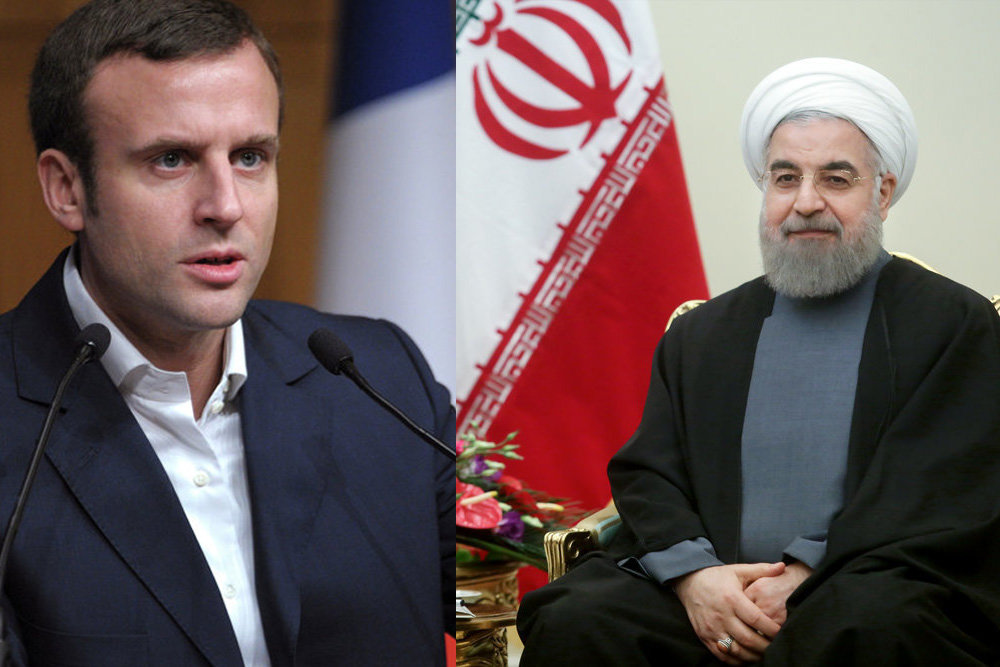In phone conversation with his French counterpart Emmanuel Macron late on Tuesday, President Hassan Rouhani called on Paris to take action against Mujahedin-e Khalq Organization (MKO), which has been fomenting violence in Iran since people in some cities poured into the streets protesting rising prices, unemployment and corruption.
MKO ringleader Maryam Rajavi issued a statement on December 30 calling for violent actions.
“We expect the French government to fulfill its legal duty in line with fighting terrorism and violence regarding this terrorist group,” he noted.
The MKO did numerous terrorist acts in Iran, especially in the early years of the 1979 Islamic Revolution. It also sided with Saddam Hussein’s army in the war against Iran in the 1980s.
MKO has been renamed as the so-called National Council of Resistance of Iran (NCRI), which its office is in Paris. France hosts annual gathering of the MKO.
‘Tehran’s principled policy is to promote peace’
In his talks with the French leader, Rouhani also said Iran’s principled policy is based on promoting peace and boosting stability in the Middle East region.
Iran gave advisory help to Iraq and Syria in their wars against Daesh militants.
“Our presence in Iraq and Syria was at the invitation of them to fight terrorism and today, it is obvious for all that Iran’s efforts and help resulted in annihilation of Daesh in the region,” Rouhani remarked.
Rouhani said that the people of any country should decide their own destiny.
He also highlighted the necessity of ending the Saudi blockade of the Yemeni people and sending humanitarian aid to them.
Commenting on bilateral relations, Rouhani expressed hope that Tehran-Paris ties and cooperation would expand in 2018.
‘Iran committed to nuclear deal’
Rouhani also said Iran has remained committed to its obligations under the 2015 nuclear deal, known as the Joint Comprehensive Plan of Action.
“The JCPOA is an international agreement which is beneficial to all and we should make efforts to keep the deal,” he said.
However, Rouhani insisted, Iran will remain committed to the JCPOA as long as the deal is beneficial for the country.
The nuclear agreement was signed by Iran, the European Union, Germany and the five permanent members of the UN Security Council – the United States, Britain, France, China and Russia – in July 2015. It took effect in January 2016.
The International Atomic Energy Agency, the United Nations’ nuclear watchdog, has issued nine regular reports each time confirming Iran’s adherence to the international deal.
Macron said that France will remain committed to the nuclear deal and called it beneficial to the international peace and stability.
He attached great importance to continuation of consultations to restore peace and stability to the region.
The French leader also praised Iranian Quds Force for its role in annihilating Daesh.
The top officials agreed to postpone French Foreign Minister Jean-Yves Le Drian’s visit to Iran.
TEHRAN TIMES
R.S

